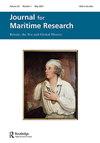沿海水域的竞争:18世纪英国的海关单桅帆船和海军部巡洋舰
Q3 Arts and Humanities
引用次数: 0
摘要
本文探讨了在漫长的18世纪中,海关与海军部作为英国沿海地区反走私预防和警务机构之间的关系。乍一看,这种关系隐含在表面上的合作修辞之中。然而,在现实中,不同的参与者在金钱奖励的驱使下,彼此之间展开了激烈的竞争。本文认为,这种竞争被中央行政官视为有利于沿海义务。竞争是保持交易成本(以欺诈、勾结和疏忽的形式)较低的最简单手段。因此,鼓励竞争而非合作,最终最有利于中央部门的议程。这条调查路线也有助于使典型的简单的走私陈述复杂化,即国家行为者一致反对走私者的努力。各中央机构在反走私方面都有自己的议程,海关委员会的任务是将这些议程协调成一项连贯的努力。本案例为探讨这种复杂性提供了一个合适的领域。它还谈到了关于18世纪国家的更广泛的关注,例如部门间竞争的性质以及私人利益与国家之间契约安排的作用。本文章由计算机程序翻译,如有差异,请以英文原文为准。
Competition in coastal waters: customs sloops and Admiralty cruisers in eighteenth-century Britain
ABSTRACT This article explores the relationship between the Customs and the Admiralty as agents of anti-smuggling prevention and policing in British coastal waters during the long-eighteenth century. This relationship was, at first glance, embedded in an ostensible rhetoric of co-operation. In reality, however, the various actors operated in stark competition to each other, occasioned by monetary rewards. It is argued here that such competition was seen as beneficial for the coastal duty by central administrators. Competition was the easiest means to keeping transaction costs – in the form of fraud, collusion, and negligence – low. The agenda of central departments was thus ultimately served best by encouraging rivalry over co-operation. This line of inquiry also serves to complicate typically simplistic representations of smuggling which see the efforts of state actors unanimously pitched against the smugglers. Various central institutions followed their own agenda in the anti-smuggling business, and it was the task of the Customs Board to reconcile such agendas into a coherent effort. The present case offers a suitable field to explore this complexity. It also speaks to wider concerns regarding the eighteenth-century state, such as the nature of inter-departmental rivalry and the role of contractual arrangements between private interests and the state.
求助全文
通过发布文献求助,成功后即可免费获取论文全文。
去求助
来源期刊

Journal for Maritime Research
Arts and Humanities-History
自引率
0.00%
发文量
0
期刊介绍:
The Journal for Maritime Research ( JMR ), established by the National Maritime Museum in 1999, focuses on historical enquiry at the intersections of maritime, British and global history. It champions a wide spectrum of innovative research on the maritime past. While the Journal has a particular focus on the British experience, it positions this within broad oceanic and international contexts, encouraging comparative perspectives and interdisciplinary approaches. The journal publishes research essays and reviews around 15-20 new books each year across a broad spectrum of maritime history. All research articles published in this journal undergo rigorous peer review, involving initial editor screening and independent assessment, normally by two anonymous referees.
 求助内容:
求助内容: 应助结果提醒方式:
应助结果提醒方式:


